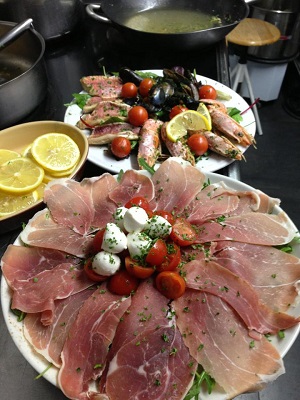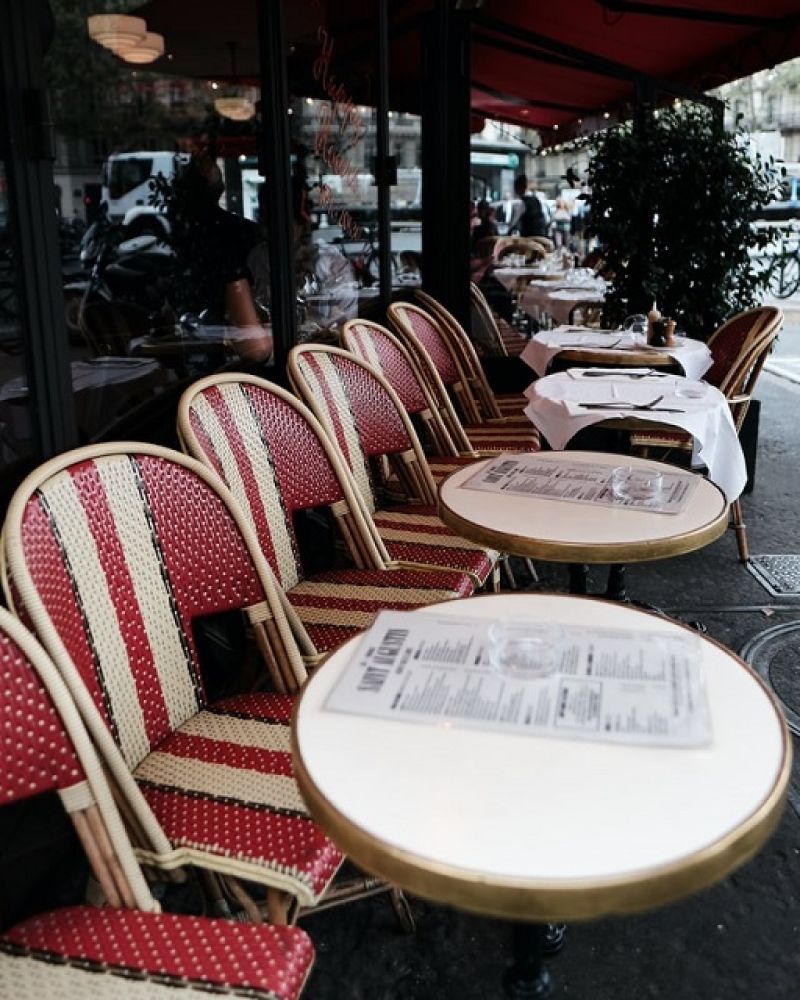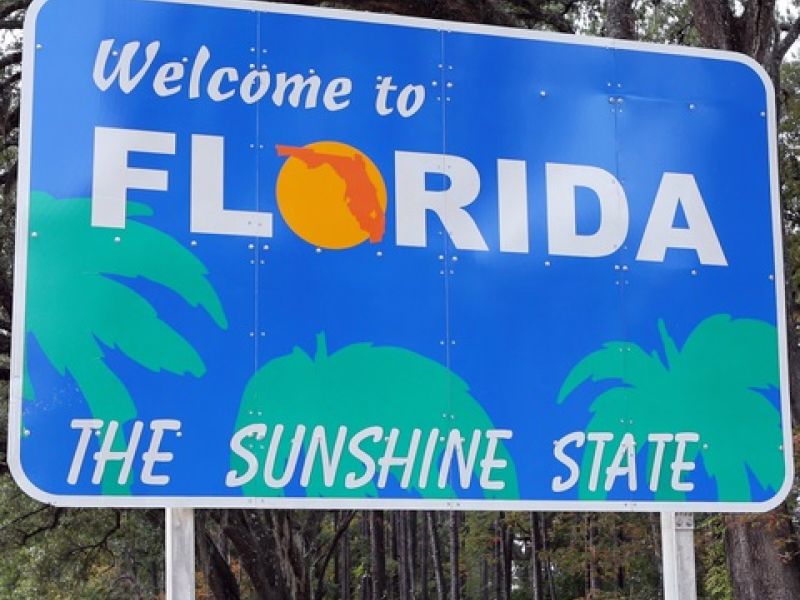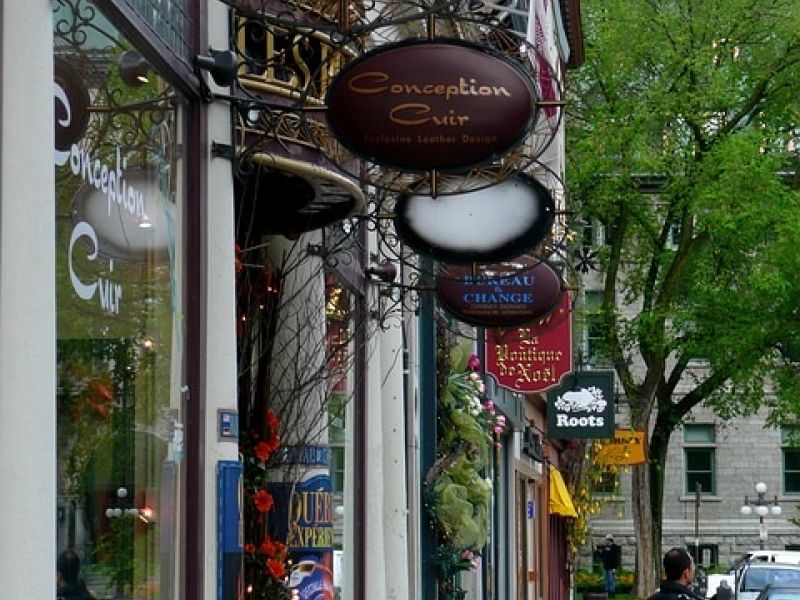Trying to open a restaurant in France, the home of classic cooking and culinary expertise, might be likened to selling ice to Inuits. Luckily for foreign restaurant entrepreneurs, the French are known for spending vast quantities on eating out, and are very open to fresh taste concepts and new places to eat.
So how do you open a restaurant in a country which has such a rich culture in cuisine? We’ve devised a step-by-step guide with the help of restaurant owner Jennifer Kim Kelly who, together with her Italian husband Gino, owns two thriving Italian restaurants in Paris.
Step 1 – Location
If you’re looking to open a restaurant in a city such as Paris, you need to check out your rivals in each district (called an arrondissement). Most districts have a central point round a metro station which is often well-populated with cafés and bistros. If you want to compete with more established premises you’ll have to make sure you stand out from the crowd – either with your style of food or the décor for your restaurant. Or if you choose a quieter street, make sure there is enough footfall to entice in passing trade.
Jennifer chose the locations of her restaurants carefully. Her café-style pizzeria Pomodoro is based in the bustling cobbled streets of Montmartre which profits from large numbers of tourists as well as local residents. While her more traditional Italian restaurant Bombolo is housed right around the corner from Bastille, a less touristy location but in a respectable neighbourhood where eating out is the norm.
Jennifer explains: “Paris gave us an extra impetus of energy because of the challenges we had to face. Looking back it made us feel as though we were at a new frontier forging ahead. I learned for example, that cooking with your Mamma at home or for friends and relatives, and cooking for a restaurant and making it a business that works, are two completely different kettles of fish! But anyone who feeds others with passion is always well-liked.”
If you are looking to get out of the city and prefer a more French country village location make sure there are enough nearby residents to cater for during the off-peak tourist seasons, otherwise you could be struggling to fill the tables and your cash register.
Related article: 5 Reasons You Should Start a Food Business in France
If you are buying an existing restaurant business, you’ll need to find out exactly why the current owners are selling and check their figures for at least the previous three years to find out how profitable they were and which months pulled in the most business. It’s also a good idea to speak to neighbouring shopkeepers to find out the truth about trading in the area. You could also do a bit of market research with them and the local public by bringing samples of your food, presenting your menu, and asking for their reaction to your proposed restaurant.
Step 2 – Financial Plan
Write down your financial plan. This should include a list of supplies your business needs and reliable local suppliers. Once you’ve found out how much your outgoings are per week, you need to take a good look at your proposed menu and calculate how many units of food and drink you’ll have to shift in order to cover those costs.
Also write down the cost of utilities, insurance, licences, rent and employee salaries. If you are using personal savings to cover any shortfall, be aware that they can dwindle very quickly in the restaurant business so perhaps consider taking on investors or consider loans or grants from local banks and authorities that could help bolster finances.
Related article: Start a Business in France in 8 Steps
Step 3 – Licences
In France there are various licenses and laws that must be adhered to before a restaurant or bar can open its doors to the public. Red tape and paperwork is par for the course at this stage, as Jennifer found out: “The rules and regulations of the restaurant business is a very steep learning curve for all involved. The list seems endless, however the majority of things are all part of opening a new business.”
 Your restaurant must conform to certain standards of electrical and general safety and catering health and hygiene. Regular inspections by the local authorities are obligatory. If your menu is not wholly vegetarian and includes any food made with meat or fish, you must declare your activity with the Direction Départementale de la Cohésion Sociale et de la Protection des Populations (DDCSPP).
Your restaurant must conform to certain standards of electrical and general safety and catering health and hygiene. Regular inspections by the local authorities are obligatory. If your menu is not wholly vegetarian and includes any food made with meat or fish, you must declare your activity with the Direction Départementale de la Cohésion Sociale et de la Protection des Populations (DDCSPP).
You will also need to organise a security check (commission de sécurité) via the town hall which will involve inspections from the fire brigade, the police and the conseil général. Each of these authorities has the power to shut down premises that don’t comply with regulations.This is where knowing the language can help so you can communicate effectively with the authorities.
Jennifer explains: “Although it certainly helps if you speak the lingo of the place where you are settling, I survived on very basic French. You have to be adaptable and willing to absorb and change with the country you live in by learning their “codes” so you can open the communication gates. Once you internalize these codes, and they become a habit, everything just seems to open up to you. Also knowing how to make people smile and laugh is a great icebreaker. In general though, wherever you are, you need to get used to organizing yourself and being your own motivator and absolutely knowing what you want. In Italy the rules of the game are somewhat fuzzy compared to France, however, red tape is red tape everywhere and that is where you need expert advice!”
Here are just some of the other requirements you will need to consider when opening a restaurant in France:
- ‘Protection of minors’ (protection des mineurs) notice;
- Type of drinks licence obtained;
- Drinks prices;
- Opening hours (which must be approved by the prefecture – the police);
- Restaurant or hotel rating.
Regarding the alcohol license – there are different types of alcohol licenses available which need to be purchased and they can range in price from around €10,000 to €20,000. They include:
• Licence II (or petite licence) – fermented alcoholic drinks, e.g. beer, wine, cider and fruit-based drinks containing up to 3% alcohol by volume.
• Licence III (or licence restreinte) – this is the same as Licence II plus wine-based liqueurs and fruit-based liqueurs up to 18% alcohol by volume.
• Licence IV (or grande licence) – this is the same as Licence III plus rum and distilled alcoholic drinks. Restaurants that want to serve drinks outside mealtimes or to non-eating customers, must obtain a restaurant-bar licence IV.
If your restaurant is going to sell alcohol, you will also have to go on a basic training course covering issues such as the dangers of over-consumption, and the laws against selling alcohol to minors.
The alcohol license must be issued at least 15 days before the start of trading and you can apply for the license at your local town hall (called a mairie). If you are buying a restaurant that already has a license make sure there is nothing stopping it from being transferred into your name. An alcohol license will not be issued to anyone who has broken the law during the past five years, or who comes from a country outside the EU that does not have reciprocal trading rights with France.
If you want music in your bar or restaurant, whether live or recorded, you will also need a separate license from the SACEM which covers artist copyright. Charges vary according to your opening hours and whether these are seasonal, the type of drinks licence you have, the number of staff and your tariffs.
A word of warning - remember not to apply for any of these licenses during the summer months as you may not get a reply on time – nearly all civil servants (as well as tradesmen and utility services) are on holiday for most of July and August.
Step 4 – Hiring staff
In big tourist areas, inspectors are likely to make regular visits to check employee contracts. You can legally employ someone for a short period or on a temporary contract when it’s busy during tourist seasons, but you must make sure it’s properly registered with the labour authorities. If you take on seasonal staff, it’s wise to keep a register of the address, date of birth, job title and starting date of each employee as well as a copy of their contract in case the inspectors pay you a visit.
If you want to take someone on permanently it’s best to do so under a three-month trial period to see if they’re right for the job and for your business. This is because once staff are permanent, the law makes it very difficult to dismiss them if they do a bad job. You can take on a new employee for a short-term contract initially (CDD, contrat de duration déterminé) and then transform it into a permanent position CDI (contrat de duration indéterminé) if the trial period has been satisfactory.
Always inform the local inspecteur de travail that you’re taking on staff, and make sure you issue employees with a contract within two days of their start-date. It’s also a good idea to draw up a list of working hours, including breaks, and a keep track of the tips received for each staff member. All staff have to have a bank account, as they must be paid by cheque or bank transfer and accompanied by a pay slip (bulletin de paie). If staff are from outside the European Union (EU), they must have the appropriate visa or permit.
You must also be aware of the ‘charges sociales’ your business will need to pay staff. This is the financial contribution you’ll have to make per employee to the French government. They include pension contributions, medical insurance and sick leave which can add up to as much as 40% of their salary.
All these factors can be taken care of by a good accountant who can deal with not only the payroll but will advise you on your tax situation and VAT payments and will ensure you follow correct procedures.
Finally, employers must pay for a basic medical examinations and certificates for all new employees to prove that they are fit for the job.
Jennifer explains the importance of having good staff: “You are the boss and sometimes it means being hard and making sacrifices that you would prefer not to. I found it vitally important to surround myself with people who encouraged me, people who “root” for me.”
Step 5 – Personal Priorities
The restaurant business is a famously difficult industry and unless you’re prepared for the inordinate amount of hard work that comes after opening your doors as well as all the preparation beforehand, you might find yourself and your business going under very quickly as Jennifer discovered: “I wish I had been more aware earlier that it’s an absolute priority to look after yourself physically and mentally, especially in something like the restaurant business. So organizing time-out for yourself is so important.”
Jennifer also has the added factor of working alongside her husband Gino. Many restaurateurs decide to go into business with friends and family so making sure these relationships don’t suffer as a consequence should also be a priority as Jennifer explains: “The restaurant business is notorious for family separations and divorces. I found that when working with my husband we have completely different ways of, shall we say, “solution finding”. I’m the “Scouser” from Liverpool and my husband is a “Sgunizzo” (naughty street urchin) from Napoli, so sparks have flown on more than the odd occasion! However the overall energy is super-positive and we are an excellent team if we have different areas to work in. Now we’ve found the balance, the result is quite surprising considering how different we are.”
If you’re interested in becoming a restaurant entrepreneur in France and need help opening your company, opening a French bank account or finding an English-speaking French accountant, you can download our free guide below or call us on 0033 (0)1 53 57 49 10 or email us through our contact page and we’ll be happy to help you on your way to opening your restaurant in France.




